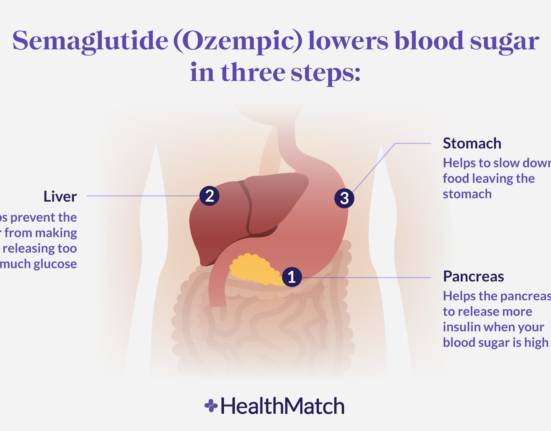Dexedrine is a psychostimulant prescription recommended to treat ADHD. Like other stimulant drugs, Dexedrine acts on the central nervous system and increases the number of neurotransmitters in the brain. Stimulating two of these neurotransmitters, dopamine, and norepinephrine, helps improve a person’s focus and concentration and reduces hyperactivity and impulsive behavior.
There are two groups of stimulant drugs: amphetamine and methylphenidate. Dexedrine is part of the amphetamine family, just like Adderall and Vyvanse. Examples of ADHD therapist near me from the methylphenidate family are Ritalin and Focalin.
Dexedrine is a brand name for a drug that is composed entirely of dextroamphetamine. It is available in tablets, and in capsules called Dexedrine Spansule:
Dexedrine tablets are short acting and are effective for approximately 4 to 6 hours. They are typically done 2 or 3 times a day.
Spansule is an extended release, and therefore is generally effective for 8 to 10 hours. When a capsule is taken, a first dose is released quickly, and the remaining drug is released gradually. It is taken once a day.
The Dexedrine Story
Dextroamphetamine is one of the oldest stimulant drugs. Here is an outline of its history:
1940s – In the mid-1940s, an American pharmaceutical company called Smith, Kline & French first marketed a product called Dexedrine.
1960s – The United States adopted a law that needed all drugs on the market to be efficient and safe. The Food and Drug Administration (FDA) initiated the Pharmaceutical Efficacy Study Implementation (DESI) program, which evaluated all drugs available before 1962. The procedure assessed 3,443 products and was done in 1984. During the DESI procedure, Dexedrine was accepted. Narcolepsy and the “hyperkinetic disorder of childhood”. It was a name for the disease now called ADHD.
In 1976 Dexedrine Spansule was approved. It had been available before then but had not been officially approved under modern FDA approval standards.
1990s – In the early 1990s, several companies were manufacturing dextroamphetamine.
Forms and doses
Fast-acting Dexedrine tablets are available in 5 milligram (mg) doses. Dexedrine Spansule is available in 5mg, 10mg and 15mg capsules. Both are FDA-approved for people six years and older.
Your physician will work directly with you to discover the correct therapeutic dosage for you or your kid. Typically, the lowest dose is tried first. The dose is gradually increased by five milligrams at a time until a dose is found that helps ADHD symptoms. The dose could range from 5mg to 40mg.
Cost
Dexedrine is a brand name drug. A month’s supply without insurance can cost around $350, depending on frequency and dose.
The generic version of Dexedrine is called dextroamphetamine. Fast-acting tablets and Spanoulis capsules are available in generic versions. However, some people report that the generic version is not as effective, or that they have side effects that they do not have with Dexedrine.
Does dexedrine slow a child’s growth?
In the 1970s, there were fears that taking a stimulant drug could slow or stunt a child’s growth.
Because Dexedrine was a popular ADHD medication at that time, people often link Dexedrine to growth problems in children.
In his book ADHD Management, Russell Barkley, Ph.D., explains that the risk of slow or stunted growth from stimulant medication is much less than was thought in the 1970s.
When it was thought that stimulant drugs for ADHD could affect growth, parents were advised to give their children a drug vacation. This meant that children took their medication as prescribed during the school year but took a break during school holidays and possibly at weekends.
Today, with ADHD medication having less of an impact on growth, medication holidays are a topic of discussion with your child’s doctor. Although stimulants help with school performance, they also help with other aspects of a child’s life, including social connection (friends and family members) and performance in recreational and sports activities.
Doctors often monitor the child’s height while the child takes stimulant medication. You and your child’s doctor can talk about the benefits and value for your child of taking medication rather than having a break from treatment.
Does Dexedrine Cause Weight Loss?
Dexedrine can suppress appetite and lead to weight loss. If you or your kid are struggling to retain or increase weight, this can be a question. It is important to ensure adequate nutrient intake. Eating breakfast before taking your medication can help. Also, have snacks on hand for when the medicine starts to wear off. Always talk to your doctor so he or she is aware of the situation and can monitor it.
Side effects
Common Dexedrine side effects include headaches, loss of appetite, weight loss, dry mouth, tremors, insomnia, and upset stomach.
For women: Tell your doctor if you are pregnant, nursing, or planning to become pregnant. Dexedrine is a category C drug and could be harmful to an unborn child.
Drug interactions: Tell your doctor about all medications you are taking as they may interact with Dexedrine. This means prescribed and over-the-counter medications and natural treatments.
If you need to stop taking Dexedrine for any reason, do not stop suddenly. Speak with your doctor for help in lowering the dose to minimize or reduce possible side effects.
Is Dexedrine always prescribed?
Yes, Dexedrine is always prescribed. However, it is considered an older ADHD medication. It is not as widely prescribed as more modern stimulant drugs like Adderall and Vyvanse.
New drugs and special means of drugs can be administered or released into the body. These new developments usually mean that the patient’s experience and quality of life are improved.
For example, Dexedrine and Vyvanse are 100% dextroamphetamine. However, they differ in the delivery method. Vyvanse is a prodrug. It contains lisdexamfetamine, which only turns into dextroamphetamine when taken by mouth and metabolized by enzymes in the body. This process takes about 1-2 hours. There is no sudden kick or shock when the medicine starts working. For this reason, Vyvanse is often described as a smooth drug. Also, there may be less drug rebound as the effects of the drug begin to wear off.
Another advantage of Vyvanse as a prodrug is that it is less likely to be abused. It cannot be inhaled or injected to get high.
Some people who have taken Dexedrine in the past will switch to a new ADHD medication, but not everyone will. Your doctor might prescribe Dexedrine if you’ve tried a new ADHD medication and haven’t had relief from ADHD symptoms.
Will Dexedrine be different from Ritalin?
It can be disappointing if you try a medication, and it doesn’t work the way you hoped. Each person will respond slightly differently to each medication. In their book ‘Answers to Distraction’, doctors Edward Hallowell and John Ratey say that Ritalin can increase alertness, energy, and motivation, while Dexedrine balances mood, helps focus and calms restlessness.
An experienced clinician will be able to listen to your ADHD symptoms and choose the best medication for you. Each person experiences different benefits and side effects with their ADHD medications. That’s why it’s often back and forth until you and your doctor find the right medication and dosage for you.
Is Dexedrine safe?
People’s biggest concern with a stimulant drug is whether it’s safe. Dexedrine is a Schedule II drug, which means there is potential for abuse. Always take your medications as prescribed. If you have a history of drug addiction, talk to your doctor. Your doctor can help you find the right ADHD treatment with the help of family therapy near me for you. Keep your medications in a safe place away from others and never share your medications.








29 Comments